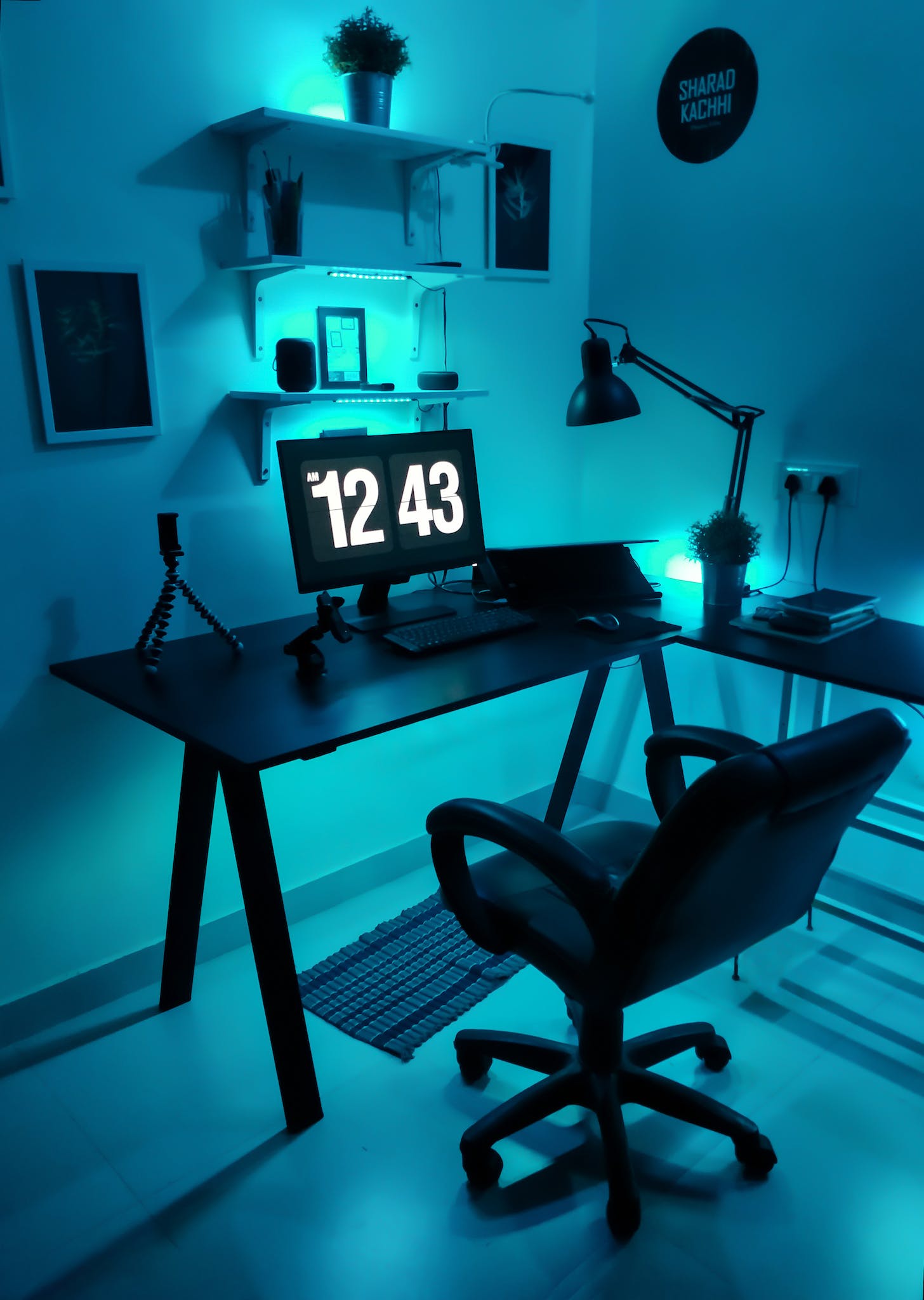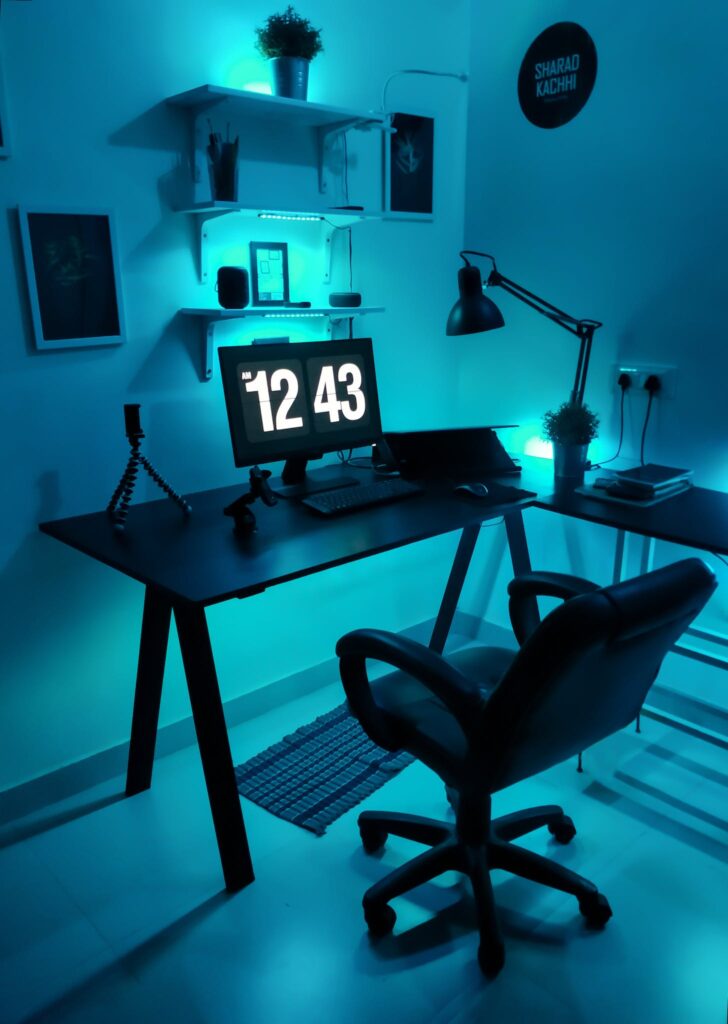Beyond the Blue Light: Navigating the Impact of Screen Time on Your Health


Table of Contents
The Effects of Excessive Screen Time on Sleep Patterns
Excessive screen time has become a common issue in today’s digital age, and its effects on sleep patterns for health cannot be underestimated. Research has shown that the blue light emitted by electronic devices, such as smartphones, tablets, and computers, can disrupt the natural sleep-wake cycle. Exposure to this type of light in the evening can suppress the production of melatonin, a hormone that helps regulate sleep. As a result, individuals who spend excessive time in front of screens may have difficulty falling asleep and experience poor sleep quality
In addition to the impact of blue light, the content and stimulation provided by screens can also contribute to sleep disturbances. Engaging in stimulating activities, such as playing video games or watching intense movies, close to bedtime can make it harder for the mind to relax and transition into a state of rest. Furthermore, the constant accessibility of screens can lead to a preoccupation with digital content, leading to delayed bedtimes and reduced total hours of sleep. These factors can all contribute to disrupted sleep patterns, leaving individuals feeling fatigued and unrefreshed in the morning.
It is important to recognize the detrimental effects of excessive screen time on sleep patterns and take proactive steps to mitigate its impact. Setting boundaries and establishing a technology curfew, especially in the hours leading up to bedtime, can help promote a healthier sleep routine. Additionally, creating a sleep-friendly environment, with dim lighting and minimizing screen use in the bedroom, can further support quality sleep. Finding alternative activities, such as reading a book or practicing relaxation techniques, can also help promote a more restful night’s sleep. By prioritizing healthy sleep habits and reducing excessive screen time, individuals can improve their overall sleep quality and overall well-being.
Understanding the Relationship Between Screen Time and Mental Health

Excessive screen time has become increasingly prevalent in today’s digital age, prompting concerns about its potential impact on mental health. Numerous studies have been conducted to explore the relationship between screen time and mental well-being. Research suggests a significant association between high levels of screen use and various mental health issues, including depression, anxiety, and stress.
One possible explanation for this connection is the displacement of physical activities and face-to-face social interactions that often occurs with excessive screen time. Engaging in sedentary behavior for prolonged periods not only leads to a lack of exercise but also exacerbates feelings of loneliness and isolation. Additionally, the exposure to unrealistic standards of beauty and lifestyle portrayed on social media platforms can contribute to body dissatisfaction and low self-esteem, further compromising mental health.
Although further research is needed to fully understand the complex dynamics between screen time and mental health, it is crucial to recognize the potential negative effects. Developing mindfulness around screen use and implementing strategies to limit exposure, such as setting time limits and creating tech-free zones, may be beneficial in promoting a healthier digital lifestyle. By prioritizing activities that foster physical activity, face-to-face interactions, and self-care, individuals can mitigate the potential negative impact of excessive screen time on their mental well-being.
How Prolonged Screen Time Impacts Physical Well-being
Extended periods of screen time can have a noticeable impact on our physical well-being. Prolonged use of electronic devices, such as computers, smartphones, and tablets, can contribute to a sedentary lifestyle, reducing physical activity and leading to weight gain and obesity. Research suggests that excessive screen time is associated with an increased risk of developing chronic diseases, including cardiovascular disease, diabetes, and certain types of cancer.
Moreover, extended screen time can also have detrimental effects on posture and musculoskeletal health. Sitting for long durations in front of a screen can lead to poor posture, causing back, neck, and shoulder pain. Additionally, repetitive movements such as scrolling and typing on devices can contribute to the development of repetitive strain injuries, such as carpal tunnel syndrome.
In order to mitigate the negative physical effects of prolonged screen time, it is crucial to incorporate regular physical activity into our daily routines. Engaging in activities such as exercise, sports, or even simple stretching exercises can help counteract the sedentary nature of screen time. Additionally, taking frequent breaks from screens, practicing good ergonomic habits, and maintaining a balanced and nutritious diet can contribute to better physical well-being in the digital age. Remember, prioritizing our physical health is vital for maintaining overall well-being.
Strategies for Reducing Screen Time and Promoting a Healthy Lifestyle

Excessive screen time has become a pervasive issue in our modern society, but there are strategies that can be implemented to reduce this habit and promote a healthy lifestyle. One effective approach is setting clear boundaries and limits for screen use. Establishing designated screen-free times, such as during meals or before bedtime, can help individuals disconnect from technology and engage in other activities that are beneficial for their well-being.
Another strategy is to create a screen-free environment in certain areas of the home. For example, designating the bedroom as a technology-free zone can help improve sleep quality by eliminating the disruptive effects of screens on the body’s natural sleep-wake cycle. Similarly, having dedicated spaces for activities such as reading books and engaging in physical exercise can encourage individuals to choose alternative options over screen-related pursuits. By implementing these strategies, individuals can begin to reduce their screen time and create a healthier balance between technology and other aspects of their lives.
Exploring the Link Between Screen Time and Eye Health
Prolonged screen time has become a common aspect of our daily lives, with many individuals spending hours each day in front of screens. As such, the potential impact of excessive screen time on eye health has garnered significant attention. Research suggests that extended periods of screen use, particularly when accompanied by poor ergonomics and viewing habits, may contribute to a range of ocular symptoms and conditions.
One such condition is digital eye strain, also known as computer vision syndrome. This encompasses symptoms such as eye fatigue, dryness, redness, and blurred vision, which can significantly impact visual comfort and acuity. Studies have found that the visual demands of screen use, such as prolonged focusing on a fixed distance and reduced blink rate, contribute to these symptoms. Additionally, the blue light emitted by screens has been implicated in increasing eye strain and disrupting the natural sleep-wake cycle. While further research is necessary to fully understand the long-term implications, adopting strategies to mitigate these effects is important for maintaining good eye health.
The Social and Emotional Consequences of Excessive Screen Use
Excessive screen use has been linked to a range of social and emotional consequences, particularly among young individuals. One significant consequence is the deterioration of interpersonal relationships. With increased time spent on screens, individuals may struggle to develop and maintain meaningful connections with others. This can lead to feelings of loneliness, isolation, and even depression.
Furthermore, excessive screen time has been associated with a decline in emotional well-being. Research suggests that excessive exposure to screens, particularly on social media platforms, can negatively impact self-esteem and body image. The constant comparison to carefully curated online personas can fuel feelings of inadequacy and contribute to a distorted sense of self. Moreover, the constant bombardment of information and online interactions can be overwhelming, leaving individuals feeling stressed, anxious, and mentally drained.
It is crucial to recognize the social and emotional consequences of excessive screen use in order to promote a healthier digital lifestyle. By limiting screen time and engaging in meaningful, face-to-face interactions, individuals can cultivate stronger relationships and improve their overall emotional well-being. Additionally, fostering a positive self-image and practicing self-care techniques can help counteract the negative effects of screen usage.
Balancing Screen Time with Other Activities for Optimal Health
Screen time has become an integral part of our daily lives, but it is important to find a balance between our digital activities and other pursuits for optimal health. Spending excessive time in front of screens can have detrimental effects on our physical and mental well-being. Engaging in other activities, such as exercise, hobbies, or socializing, can help offset the negative impact of screen time and contribute to a healthier lifestyle.
Regular physical activity is crucial for maintaining good health and reducing the risks of various health conditions. Participating in activities like sports, yoga, or simply going for a walk can not only help counteract the sedentary nature of screen time but also improve cardiovascular health, muscle strength, and overall well-being. Additionally, engaging in physical activities provides an opportunity to disconnect from screens and recharge the mind and body. Taking breaks from screens and indulging in other hobbies, such as reading, painting, or playing a musical instrument, can also promote relaxation, creativity, and cognitive development. Balancing screen time with these activities not only improves our overall health but also enhances our quality of life.
The Cognitive Impact of Excessive Screen Time on Brain Development
Excessive screen time has been found to have a significant impact on brain development, particularly in children and adolescents. The continuous exposure to screens, such as smartphones, tablets, and computers, can disrupt the normal cognitive processes and hinder proper brain functioning.
One of the primary concerns is the effect of screen time on attention and executive functions. Research has shown that excessive screen use can impair attentional control, making it harder for individuals to sustain focus and concentrate on tasks. Additionally, prolonged screen time has been associated with reduced working memory capacity, which is crucial for information processing and decision-making. These cognitive impairments can have long-term consequences on academic performance and overall cognitive development.
Aside from attention and memory, excessive screen time can also affect language skills and language processing. A study published in the Journal of Pediatrics found that children aged 6 months to 2 years who had higher exposure to screen media had lower expressive language scores. This suggests that excessive screen time may hinder language development and the acquisition of important communication skills. Another study conducted by the American Academy of Pediatrics found a link between screen time and poor language skills in 2-year-old children. The research indicated that for every 30 minutes of screen time, there was approximately a 49% increased risk of expressive language delay.
These findings highlight the importance of limiting screen time, particularly for young individuals, to ensure healthy brain development and optimal cognitive functioning. Creating a balance between screen use and other activities, such as outdoor play, reading, and social interactions, can promote cognitive growth and enhance overall well-being.
Tips for Setting Healthy Boundaries and Limiting Screen Time
Setting healthy boundaries and limiting screen time is essential for maintaining a balanced and healthy lifestyle in today’s digital age. Excessive screen time has been linked to various physical and mental health issues, including sleep disturbances, eye strain, decreased physical activity, and poor concentration. It is therefore crucial to establish effective strategies to reduce screen time and optimize overall well-being.
First and foremost, it is important to set clear and realistic boundaries for screen use. Establish designated times for using screens, such as during work or school hours, and limit recreational screen time to a reasonable duration. Communicate these boundaries with family members, especially children, and encourage open discussions about the importance of reducing screen time for the benefit of overall health. Additionally, consider implementing a screen-free zone in your home, such as the dining area or the bedroom, where screens are not allowed, promoting healthier habits and improved sleep patterns.
The Role of Blue Light Filters and Other Technologies in Minimizing Health Risks
Blue light filters and other technologies have become increasingly popular in recent years as people have become more aware of the potential health risks associated with excessive screen time. These technologies aim to minimize the negative impact of blue light emitted by screens, which has been shown to disrupt the body’s natural sleep-wake cycle and suppress the production of melatonin, a hormone that regulates sleep. By filtering out or reducing blue light, these technologies help to promote better sleep quality and improve overall sleep patterns.
Studies have found a link between excessive blue light exposure and various health issues, including insomnia, sleep disturbances, and even an increased risk of chronic conditions such as obesity, diabetes, and cardiovascular disease. Blue light filters and technologies such as screen dimming features and specialized glasses can help to counteract these negative effects. By reducing the amount of blue light reaching the eyes, these filters and technologies can help to regulate the body’s internal clock and improve sleep quality, thus minimizing the associated health risks.
While blue light filters and other technologies may not completely eliminate all health risks associated with excessive screen time, they can certainly play a significant role in minimizing these risks. It is important to note, however, that incorporating other healthy habits such as limiting screen time before bed, practicing good sleep hygiene, and maintaining a balanced lifestyle are also crucial for overall well-being. By utilizing these technologies alongside other healthy practices, individuals can take proactive steps in minimizing the potential health risks associated with prolonged screen use.
Nurturing Healthy Habits for a Balanced Digital Life

The digital age has brought about convenience and connectivity like never before. However, it has also brought with it a host of challenges when it comes to maintaining a balanced lifestyle. Nurturing healthy habits for a balanced digital life is essential to ensure optimal physical and mental well-being.
One key aspect of creating a balanced digital life is establishing boundaries. Setting limits on screen time can help prevent the overuse of digital devices and promote healthy habits. It is recommended to create a schedule that includes designated screen-free times, such as during meals or before bedtime. This allows for engagement in other activities, such as exercise, hobbies, or spending quality time with loved ones. By prioritizing these offline experiences, individuals can foster a more balanced and fulfilling lifestyle, reducing the negative impacts of excessive screen time.
Additionally, it is important to be aware of the potential health risks associated with prolonged screen use. The blue light emitted by digital screens can disrupt sleep patterns and affect overall well-being. Using technologies such as blue light filters or wearing blue light-blocking glasses can help mitigate these effects. Regular breaks from screen time, as well as practicing proper posture and ergonomics when using digital devices, can also contribute to a healthier digital lifestyle.
In conclusion, nurturing healthy habits for a balanced digital life is crucial in today’s digital age. By setting boundaries, being mindful of screen time, and taking measures to mitigate potential health risks, individuals can achieve a healthier and more fulfilling lifestyle.
• Setting limits on screen time can help prevent overuse of digital devices
• Create a schedule with designated screen-free times, such as during meals or before bedtime
• Engage in offline activities like exercise, hobbies, or spending time with loved ones
• Prioritize offline experiences to reduce negative impacts of excessive screen time
• Be aware of potential health risks associated with prolonged screen use
• Blue light emitted by screens can disrupt sleep patterns and overall well-being
• Use blue light filters or wear blue light-blocking glasses to mitigate these effects
• Take regular breaks from screen time and practice proper posture when using digital devices
In conclusion:
– Nurturing healthy habits for a balanced digital life is crucial in the digital age.
– Set boundaries and be mindful of screen time to achieve balance.
– Mitigate potential health risks through measures such as blue light filters and breaks from screens.
– Strive for a healthier and more fulfilling lifestyle.
What are the effects of excessive screen time on sleep patterns?
Excessive screen time can disrupt sleep patterns by interfering with the body’s natural sleep-wake cycle. The blue light emitted from screens can suppress the production of melatonin, a hormone that helps regulate sleep.
How does prolonged screen time impact physical well-being?
Prolonged screen time can lead to sedentary behavior, which is associated with a higher risk of obesity and other health issues. It can also contribute to poor posture, eye strain, and musculoskeletal problems.
How can screen time affect mental health?
Excessive screen time has been linked to an increased risk of mental health problems, such as depression, anxiety, and social isolation. It can also negatively impact cognitive function and attention span.
What are some strategies for reducing screen time and promoting a healthy lifestyle?
Some strategies include setting limits on screen time, scheduling regular breaks, engaging in physical activity, finding alternative activities, and creating a tech-free routine before bed.
How does screen time impact eye health?
Extensive screen time can cause digital eye strain, dry eyes, blurred vision, and other eye discomforts. The blue light emitted by screens may also contribute to long-term damage to the retina.
What are the social and emotional consequences of excessive screen use?
Excessive screen use can lead to decreased social interaction, increased feelings of loneliness, reduced empathy, and difficulty in building and maintaining relationships.
How can screen time be balanced with other activities for optimal health?
It is important to prioritize a variety of activities, such as exercise, hobbies, socializing, and spending time in nature, to balance the negative effects of excessive screen time and promote overall well-being.
What is the cognitive impact of excessive screen time on brain development?
Excessive screen time, especially at a young age, has been associated with delays in cognitive development, impaired memory, decreased attention span, and reduced problem-solving skills.
What are some tips for setting healthy boundaries and limiting screen time?
Tips include setting specific time limits, creating tech-free zones, using apps or tools to track and manage screen time, involving the whole family in setting rules, and leading by example.
How can blue light filters and other technologies minimize health risks associated with screen time?
Blue light filters, screen protectors, and night mode settings can help reduce the negative impact of blue light on sleep patterns and eye health. Other technologies, such as apps that promote mindfulness and digital well-being, can also be beneficial.
What are some ways to nurture healthy habits for a balanced digital life?
Some ways to nurture healthy habits include practicing digital detoxes, setting realistic goals for screen time, prioritizing offline activities, practicing mindfulness, and seeking support or professional help if needed.







